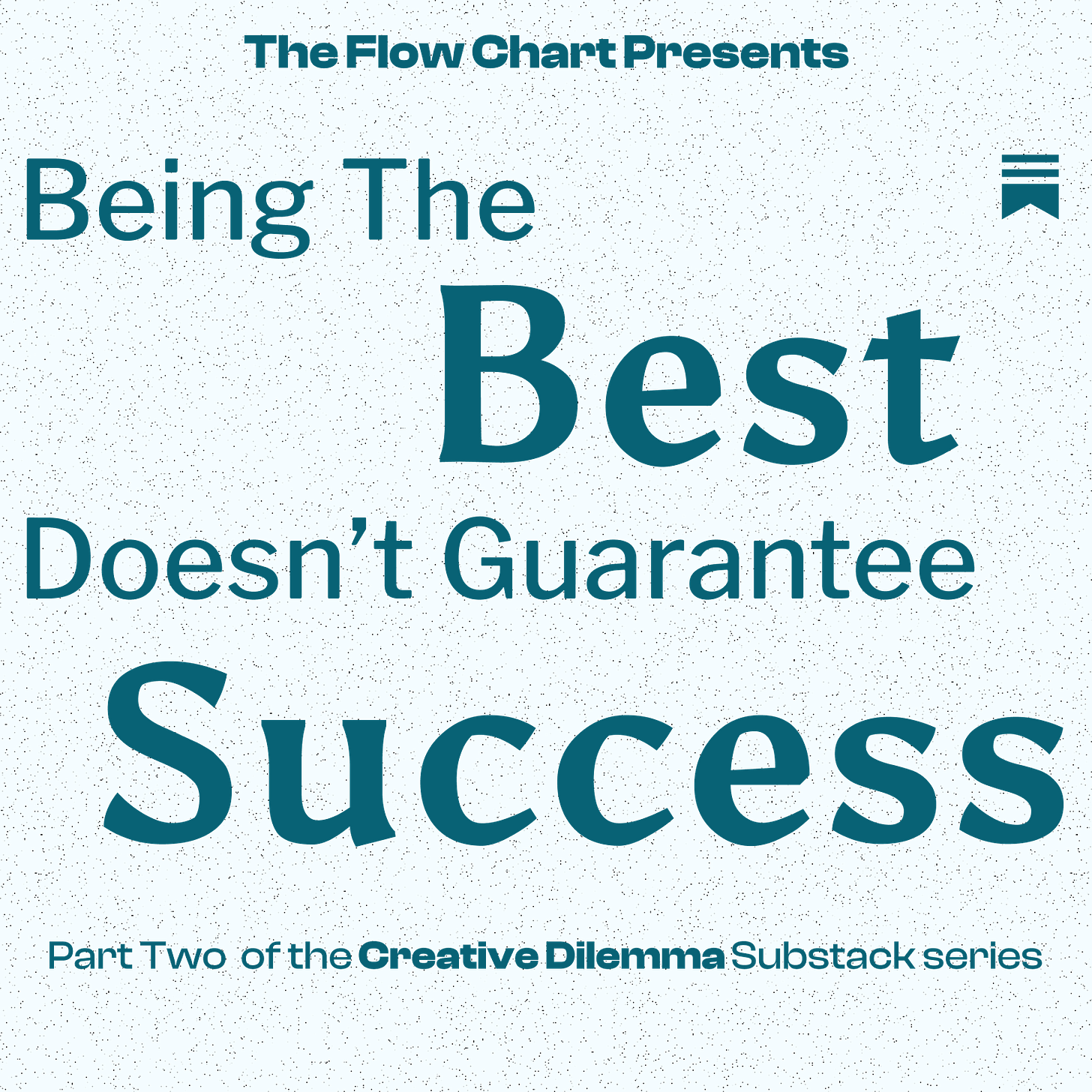Being The Best Doesn't Guarantee Success
Success is more complicated and nuanced than you think.
To be the best in any given field or endeavour we take in our life will always be an enduring goal or mission for most humans. This involves studying and working hard, applying what we have studied in the real world, and so on. Sometimes, being the best doesn't give a guarantee of success. It does give you a chance but not a guarantee. Other elements are also necessary for success and they got lost in translation or deemed unnecessary. We are going to take a dive into these elements and understand why they are overlooked but essential for success(Still not a guarantee though!).
Hardwork Is More Effective When Directed Properly.
Working hard is good. Hard work is one of the main tenets of success or is highly correlated with successful outcomes. As the saying goes "Not all who work hard succeed, but all who succeed work hard". Hard work can also be a waste of time if it is not directed properly.
You could be the most hardworking janitor in the world but you are still a janitor. Effective hard work means working in niches or places that have a good ROI or a long-term payoff. Hard work also can be directed to skill sets that are not valuable or useful at the moment but will be in the future.
The key regarding hard work is to direct it effectively to places or niches where it will be valued properly. You don't want to get stuck in a place where you do the most work but in the end, nothing comes out of it. Also, there is another side to this, there are some projects or things that we undertake that require a lot of work and don't seem to have any upside in the long run because they are brand new.
These could be potential disruptors or massive duds which is why the next element is also essential to increase your chances of success.
Understand Your Market.
You can make the best plans or ideas but if they don't fit into the market or have an appeal with your customers and intended audience, chances of success will be low. Understanding the market is an overlooked key element because people get so engrossed in their ideas or plans that they forget who they are making it for.
Understanding the market could be in two parts(Effective Communication of Ideas, Research, and Adaptability). Effective communication of our ideas is essential for them to appeal to a certain audience or customer base. Effective communication mostly means empathizing with your intended audience and crafting a message to reach that audience. This sounds easy but it is a little complex because humans are very irrational creatures that can bring unique surprises down the line.
This is where market research comes in. Research is useful in understanding what your customers want and how to appeal to that audience in the language they understand. It can also be used to communicate different plans or ideas to relevant stakeholders in your workplace, business environment, etc.
Research does come with its risks though. Sometimes what people say they want is not what they want e.g. everybody says they like small phones because they can fit into their hand but the top selling phones worldwide are massive etc.
It pays to be wary of market research and ensure certain biases are avoided when evaluating the data to bring effective conclusions and solutions. Adaptability is using the solutions gained from user research or gathering local insights regarding the ideas or plans and executing them effectively.
This could mean your proposed plans fit the audience requirements end-to-end. This could also mean ignoring your audience's insights and aiming for an elevated experience or product that is different from what the audience wants but creates a whole new category by itself. You may fully understand the market and so forth but one last important element could derail or elevate your plans and it is something that is a little out of our control
Timing And Luck
So you have done the hard work, the market research, etc. You have communicated your ideas effectively and you think you have crafted the perfect product. On release day, you are expecting massive market and monetary success but it doesn't go so well. How can this be, I have done all the work, what am I missing?
This could be attributed to timing and luck. Some products that failed this decade would probably be a hit in the previous decade or the next decade. Remember Onlive? It was one of the first game streaming companies (streaming games from a server to your PC) and it wasn't a hit which was mostly pinned on low internet speeds.
Now, we have Geforce Now, PlayStation Now, etc. The market can be in massive flux and what was relevant yesterday can change overnight to something else. Timing is difficult to ascertain or predict because the world is an irrational and unpredictable place.
My solution is if you are sure of what you are doing, release it anyway and see what happens, or try a limited release with not a lot of resources to see the market response and scale production if there is potential. Luck is also another factor that we can't control but we can try to increase our luck surface area which involves implementing the strategies stated above to increase our chances of success but we must remember that there is no guarantee. These strategies just give you an extra edge in the market and that's it.
This is Part 2 of the "Creative Dilemma" Series. Please subscribe and share with your friends, colleagues, family, etc. Please leave comments and essential feedback regarding this. Thank you




